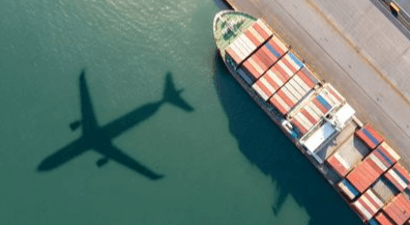Marine Insurance: VAT Treatment of Goods Supplied on Cost, Insurance and Freight (CIF)
The Incoterm Cost, Insurance and Freight (CIF) is restricted to goods transported by sea or inland waterway. It should be used when the seller has direct access to the vessel for loading, for example bulk cargos or non-containerised goods (for containerised goods, consider Carriage and Insurance Paid (CIP) instead).
According to the International Chamber of Commerce (ICC) the official definition of CIF states that: "The seller delivers the goods on board the vessel or procures the goods already so delivered. The risk of loss of or damage to the goods passes when the goods are on board the vessel. The seller must contract for and pay the costs and freight necessary to bring the goods to the named port of destination". The seller is responsible for insuring the goods to cover the risk of loss or damage during carriage. The rule only requires a minimum level of cover, and as this may not be ideal commercially, additional cover may need to be addressed in the commercial agreement between the seller and the buyer.
For goods supplied on CIF, since the risk in the goods sold passes to the buyer upon delivery, the question is whether the seller or the buyer is the insured in terms of the insurance contract, even though the seller is liable to pay the premiums. Also, what is the correct VAT treatment to be applied to premiums and claims? Inward and outward marine policies are subject to zero rate VAT, with the result that no input tax is claimable in respect of any premiums paid.
In the event of a claim, one would consider sections 8(8) and 16(3) of the Value Added Tax Act No. 89 of 1991.
Section 8(8) of the VAT Act provides that where a vendor (the insured) receives any indemnity payment or any payment made by the insurer in money to indemnify the insured against third party claims in respect of a contract of insurance in respect of a loss incurred in the course of the insured's enterprise, the amount received by the insured is deemed to be consideration received for a supply of services made by that insured in the furtherance of his enterprise. The implications are that the insured will be liable to declare the output tax on the indemnity payment. The output tax will be calculated by applying the tax fraction on the indemnity payment made by the insurer.
Section 16(3)(a) of the VAT Act, entitles an insurer, who acquires goods or services for indemnifying the insured, to deduct any VAT paid for the acquisition of the said supplies as input tax. The provision is limited to certain instances, as the insurer will not be entitled to the input tax deduction where:
• the supply of the contract insurance is not a taxable supply;
• the payment made relates to a supply of goods or services to the insurer or any importation of goods by the insurer;
• the supply of the contract of insurance is subject to VAT at the zero rate and the insured is not a resident at the time the payment is made; and
• the payment results from a supply of goods or services located outside the Republic.
One must determine who the insured is in terms of the contract of insurance, in order to determine whether any section 8(8) VAT liability exists and whether a deduction can be claimed by the insurer. One must therefore ask the question: Who has the insurable interest in terms of the contract of insurance at the time a claim arises?
In terms of marine policies where the Incoterms are CIF, if one works from the understanding that the seller has no insurable interest from the point the risk transfers to the buyer, the seller will not have a section 8(8) VAT liability where the loss occurs after the risk transfers to the buyer, even though the policy was issued in the name of the seller and the seller paid the premiums. Equally, the insurer will not be entitled to claim a deduction, assuming the buyer is not a resident or a VAT vendor.





